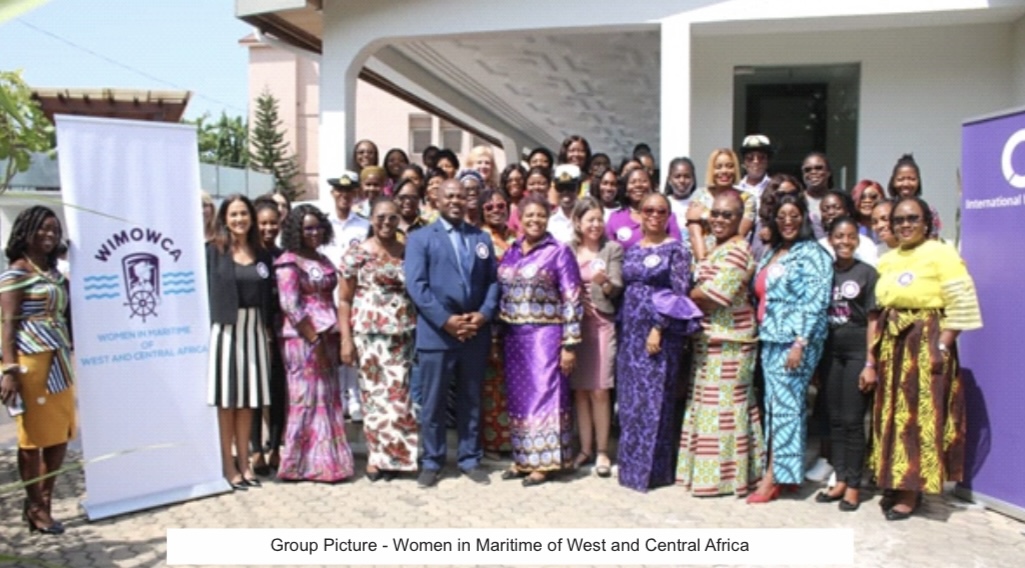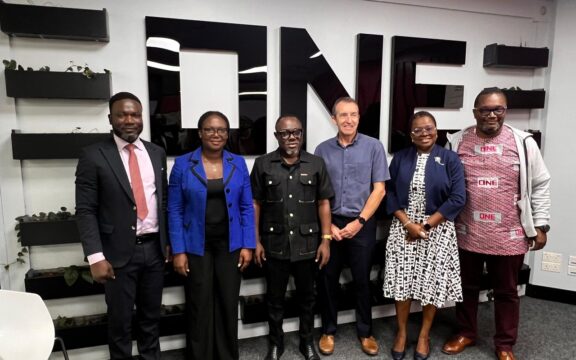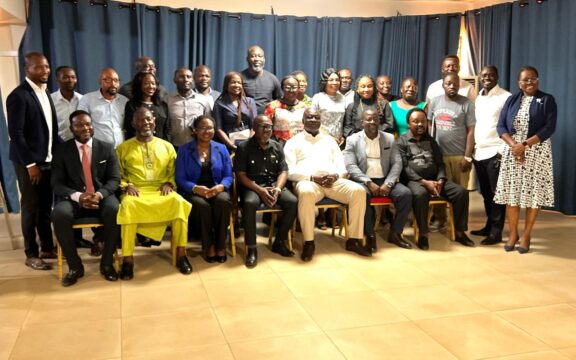The Women in Maritime of West and Central Africa (WIMOWCA) joined the rest of the world to mark another International Women’s Day (IWD) on 8th March 2023 in Accra, Ghana. The day is set aside annually to celebrate the economic, political, social and cultural achievements of women across the globe. It is also a call-to-action to progress gender parity in all spheres of the world. But the celebration of the day, which is the focal point of Women’s Rights, started after the Socialist Party of America organised a Women’s Day in New York (NY) on February 28, 1909. After women gained suffrage in Soviet Russia in 1917, 8th March became a national holiday in that country. The day was then predominantly celebrated by the socialist movement and communist countries until it was adopted in 1975 by the United Nations (UN).
Today, the issues confronting women have not changed. According to the Global Poverty Project, women make up half the world’s population but also represent a staggering 70 per cent of the world’s poor. In fact, there are 250 million girls living in poverty today. Inequalities persist everywhere — in business, education and politics.
This year, the UN chose the theme: “DigitALL: Innovation and technology for gender equality,” to recognise and celebrate women and girls who are championing the advancement of transformative technology and digital education. IWD 2023 explored the impact of the high number of men who utilise the internet compared to women, a phenomenon widening economic and social inequalities. It also placed the spotlight on the importance of protecting the rights of women and girls in digital spaces and addressing online and ICT-facilitated gender-based violence.
 Creative Solutions
Creative Solutions
Bringing women and other marginalised groups into technology results in more creative solutions and has greater potential for innovations that meet women’s needs and promote gender equality.
Their lack of inclusion, by contrast, comes with massive costs: as per UN Women’s Gender Snapshot 2022 report, women’s exclusion from the digital world has shaved $1 trillion from the gross domestic product of low- and middle-income countries in the last decade—a loss that will grow to $1.5 trillion by 2025 if no action is taken.
Reversing this trend will require tackling the problem of online violence, about which a study of 51 countries revealed that 38 per cent of women had personally experienced. A gender-responsive approach to innovation, technology and digital education can increase the awareness of women and girls regarding their rights as well as civic duties.
Advancements in digital technology offer immense opportunities to address development and humanitarian challenges, and to achieve the Sustainable Development Goals. Unfortunately, the opportunities also present a risk of perpetuating existing patterns of gender inequality.
Growing inequalities are becoming increasingly evident in the context of digital skills and access to technologies, with women being left behind as the result of this digital gender divide. The need for inclusive and transformative technology and digital education is therefore crucial for a sustainable future.
Women in Maritime
It was for the above reason that women in the maritime domain of West and Central Africa converged in Accra, Ghana to commemorate the 2023 International Women’s Day (IWD). The event was made possible through the collaborative efforts of the British High Commission in Ghana, the United Kingdom (UK) Department of Transport and WIMOWCA.
The theme for the event ”Embrace Equity” aligns with the principal theme of the International Women’s Day Celebration, ”Innovation and Technology for Gender Equality”. It is not only fundamental to achieving inclusive participation, but also more importantly, speaks to efforts at removing all structural and systemic barriers that impede the promotion of women in the global maritime ecosystem.
In a speech read on his behalf, the Minister of Transport, Mr. Kwaku Ofori Asiamah commended women for their remarkable contributions towards the growth and development of the country, particularly in the maritime industry. “Indeed, you are our inspiration, and the maritime industry is better off with your bold initiatives and participation especially at leadership levels,” he said.
Significant barriers
For her part, the President of WIMOWCA, Ms. Sylvia Asana Owu, pointed out that women have faced significant barriers to entry, ranging from access to education, training and career advancement opportunities.
As a result, women have been underrepresented in all areas of the maritime industry. She said; “Fortunately, in recent years, the industry has made significant progress in promoting gender diversity and inclusion with many organisations launching initiatives to raise awareness and supporting women to pursue careers in maritime”. She challenged organisations and individuals working in the maritime industry to promote a culture of diversity and inclusion.
Way forward
The important role that women play in the realisation of the economic benefits of Africa’s Blue Economy cannot be overemphasized. It is therefore important that due cognizance is taken of how much more women can contribute, when the right conditions are created to facilitate not just their participation in this industry, but more importantly, their sustained career growth and development in the maritime ecosystem.
It is also obvious that the sustainable development of the Blue Ocean economy requires effective management of diversity within the maritime domain. The encouragement of women’s participation in the maritime industry must therefore go beyond mere flamboyant rhetoric into ensuring that timely interventions are implemented at all levels.
Women are engaged in all aspects of interaction with our ocean, yet their voices are, more often than not, crowded out especially at the decision-making levels.
This status quo must change. We must ensure diversity and gender inclusiveness at all levels to set a balanced course for humanity. The country may have made significant and tremendous progress towards achieving gender parity in the maritime industry with some appointments in recent times, but much more effort ought to be put in place to sustain the momentum.






